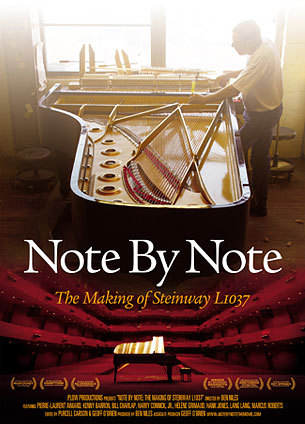November 30, 2007
November 29, 2007
November 15, 2007
Margot at the Wedding
 Directed by Noah Baumbach Starring Nicole Kidman, Jennifer Jason Leigh and Jack Black
Directed by Noah Baumbach Starring Nicole Kidman, Jennifer Jason Leigh and Jack Black
Reviewed by Martin Tsai
With The Squid and the Whale, Noah Baumbach completely refashioned himself as a quasi-Europhile auteur. Truffaut, Rohmer and Bergman are some of the names that critics have dropped while fawning over his recent films. With Margot at the Wedding, the late-achieving Baumbach makes it clear that he has no plans to revisit the Whit Stillman and Woody Allen homage he paid in the late 1990s anytime soon. Baumbach has also insisted in interviews that his much-admired Squid isn’t autobiographical as some in-the-know critics have interpreted it. It’s increasingly unclear whether the filmmaker’s newfound voice is indeed all his.
In Baumbach’s latest, Nicole Kidman plays Margot, a narcissistic author who found acclaim by airing her family’s dirty laundry but alienated her loved ones in the process. Her estranged sister Pauline (Jennifer Jason Leigh) is about to marry the deadbeat Malcolm (Jack Black), and finally reaches out to Margot with an invitation. But Margot is less interested in patching things up than averting her own marital woes and thwarting Pauline’s wedding. The title really is a misnomer, since toward the end we’re not sure whether there will be a wedding, let along whether Margot will be present.
Margot attempts to give the well-worn tale of sibling rivalry the same kind of cathartic treatment Squid gave to the divorced parents, but with mixed results. Squid focused on how a marital separation affected the two children, and the viewers remained sympathetic with the boys even when they started acting out irrationally. In Margot, the emphasis is on the sisters’ embittered relationship and Margot’s overcompensation for her insecurities. Baumbach’s psychobabble is at times profound, but the film doesn’t articulate the kind of emotional toll that Margot has taken on everyone around her. Nearly everyone in the film is unlikable to varying degrees, leaving viewers no one to identify with. When Margot reaches an epiphany in the film, we’re not entirely sure whether she has arrived at a turning point or she is manipulatively playing for sympathy. Kidman deserves credit for fearlessly making a character so thoroughly unlikable.
© Copyright 2007 Martin Tsai. All rights reserved.
November 07, 2007
November 05, 2007
Broken
Directed by Alan White Starring Heather Graham and Jeremy Sisto
Reviewed by Martin Tsai
A cautionary tale about an aspiring entertainer who arrives in Hollywood only to land on the proverbial boulevard of broken dreams sounds all too familiar in this celebrity-obsessed culture. With someone like David Lynch at the helm it might turn into a spellbinding phantasmagoria like Mulholland Dr. Otherwise, it’s a well-worn cliché.
In Broken, Heather Graham plays a failed chanteuse not so subtly named Hope, who’s of course waiting tables in some seedy diner — which seems sadly appropriate considering how far Graham has fallen since her Felicity Shagwell days. As if Hope weren’t downtrodden enough, she has to juggle an onslaught of increasingly demanding customers: two losers trying to score women and drugs, a group of partiers making a stop before an orgy, a Hollywood madam and her protégée, an obnoxious movie producer and his writer/director, an arrogant agent and some no-talent band he’s trying to sign, and finally, Hope’s codependent crackhead ex-boyfriend, Will (Jeremy Sisto).
Drew Pillsbury’s screenplay jumps temporally between Hope’s dreadful nightshift and her drug-addled relationship with Will, and there are no discernable parallels between the two narratives. The non-linear storytelling also doesn’t make the unsubstantial plot any more interesting. The flashbacks only serve to reveal the couple’s addictions and rope in some gratuitous sex scenes, doing nothing to account for Will’s intense obsession with Hope and her inexplicable tolerance of him. Graham is extremely photogenic, but it isn’t enough to make us care about whether Hope’s plight is just one big hallucination with a cop-out ending. If anything, one wonders whether Graham will wake up from her own nightmarish career.
Broken also makes a compelling case for independent films to stop employing amateurish guitar scores. It seems as though many indie features, be they thrillers or romantic comedies, have similar scores that inappropriately accompany them as if they were all The Spitfire Grill. Perhaps its production budget all went toward casting recognizable stars; the soundtrack in Broken consists solely of songs from the San Francisco-based band the Brian Jonestown Massacre and composer Jeehun Hwang’s score, which seems to alternate between just a couple of chords. As Hwang slowly strums away any tension left in the film, one can’t help but wonder if it would be better off as a silent film.
© Copyright 2007 Martin Tsai. All rights reserved.







